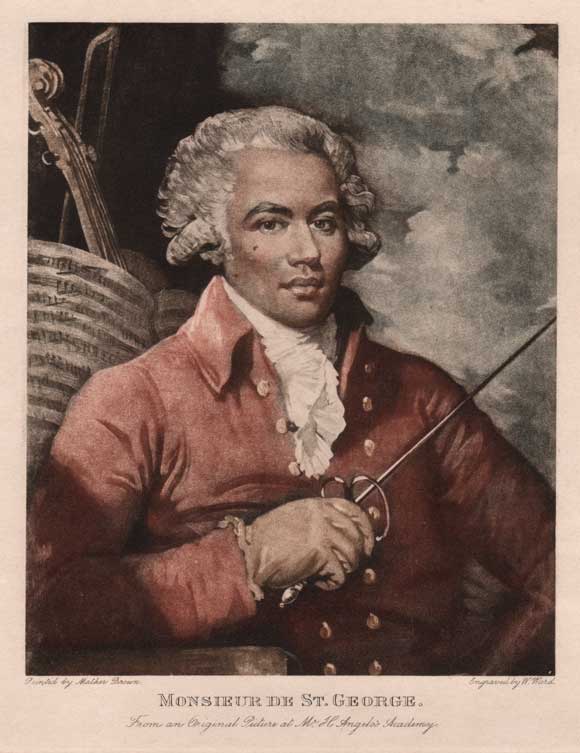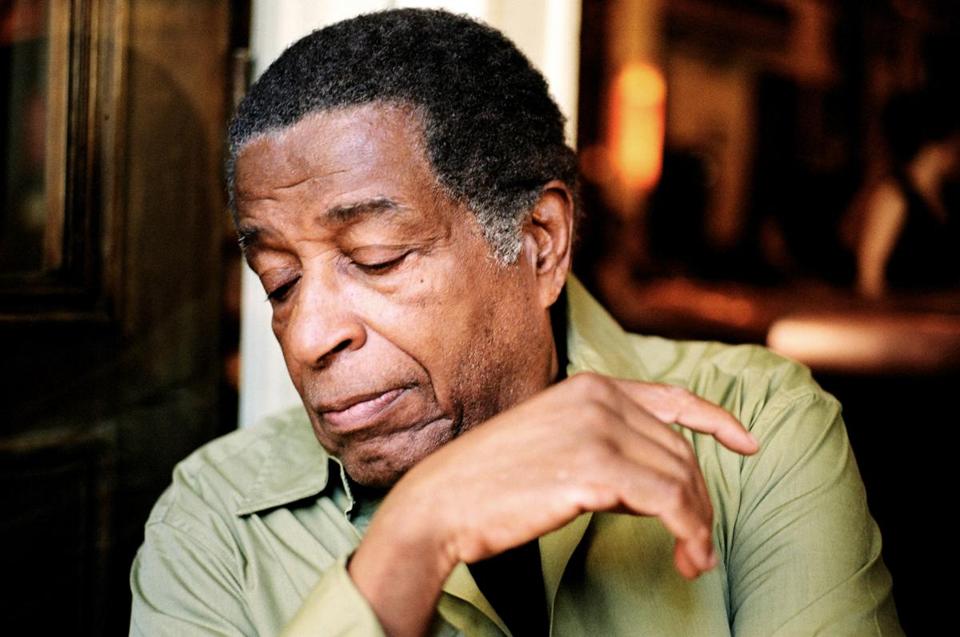|
by Anthony R. Green HAPPY SUNDAY, BIBA READERS! Last week BIBA was on hiatus due to traveling and working with students at the Conservatory Lab Charter School for an exciting collaboration between their students and Castle of our Skins for the Celebrity Series Dorchester String Fest! COOS is excited to present this project December 1st, and the the two commissioned new works will be performed again December 5th! Details coming soon! Today, however, is a very special day. It is Veterans Day. And this particular Veterans Day coincides with the first Veterans Day ever, which was called Armistice Day. The first celebration occurred exactly 100 years ago today, the 11th day of the 11th month at the 11th hour, when the Armistice with Germany went into effect (according to Wikipedia) at the end of World War I. Armistice Day was renamed to Veterans day in 1954. With that said, I would like to take this BIBA to honor two Black composers who were Veterans: Chevalier de Saint-Georges and Ed Bland. It is no secret that Chevalier de Saint-Georges was an excellent fighter and leader; Chevalier – his title of honor gained in recognition of his supreme fencing skills – is in his name. What many perhaps do not know about him is that he fought in the French Revolutionary War, more specifically in the first all-Black military regiment in Europe. In 1792, a Haitian free man of color named Julien Raimond organized this regiment, and appointed Chevalier as the colonel. This new Légion St.-Georges was a volunteer group, and Chevalier’s name alone was the main attractor of volunteers, who came from all over France. His military career was fraught with difficulties, however. He was accused for squandering money, even though he did not do so; his men were accused of being traitors, but they were merely Black; and his group did not receive adequate funding, horses, and supplies, which always put them in difficult situations. Eventually he was jailed for over 13 months for unknown charges, which ended up being beneficial as many citizens were being executed during his imprisonment. However, when he was released, he wanted to regain his position as colonel, but was fought by one of the two new colonels of the legion. St.-Georges lost the fight, and was ordered to stay away from the legion, not ever receiving a medal or recognition for his previous service. However, his service is documented, and his music and arts career is one of sophistication, pride, and depth. Thankfully interest in Saint-Georges is deepening, and hopefully one day he will appear in music history classes alongside Mozart and Haydn, both of whom encountered St.-Georges in their lives, and were impacted by this extraordinary man. Composer Ed Bland was born in 1926 on the south side of Chicago, and passed away in 2013. His father was a postal worker and a self-taught literary critic, who was friends with such luminaries as Ralph Ellison, Gwendolyn Brooks, and Langston Hughes. Ed Bland’s father, Edward senior, was also a veteran who unfortunately died in the Battle of the Bulge in 1944. Following in his father’s footsteps, Ed Bland served in World War II, which allowed him to study music at post-secondary institutions with support from the G.I. Bill. Ed Bland had an offer to play in a band next to Charlie Parker (before he became Charlie Parker), but his mother did not give him permission to go on the road with a band, preferring he entered college. Then the Pearl Harbor attack occurred, and Ed knew he would be drafted. Around that time, he met many Navy band musicians who all urged him to join the Navy band because he was so talented as a saxophone and clarinet player. Therefore, when Ed was drafted, he joined the Navy band. His service mostly took place at Treasure Island, one of the major stations in the San Francisco area.
However, from a young age, Edward senior exposed young Ed Bland to writer discussions with Richard Wright and others, and told Ed to read books by Bertram Russel and others. Consequently, Ed developed an analytical and philosophical mind. He made powerful, controversial statements in his music, in his film “The Cry of Jazz” (available to watch on YouTube), and in his writings, many of which can be found on his website. After his service, he made sure to study philosophy along with music because he was acutely aware that he needed the mental tools to defend his musical decisions. He was a fighter through his music and artistic practice, and a musician in his naval service. Let’s not forget to honor those veterans in our lives on this Armistice/Veterans Day!
0 Comments
Leave a Reply. |
Details
Writings, musings, photos, links, and videos about Black Artistry of ALL varieties!
Feel free to drop a comment or suggestion for posts! Archives
May 2024
|
Member Login
Black concert series and educational programs in Boston and beyond



 RSS Feed
RSS Feed










